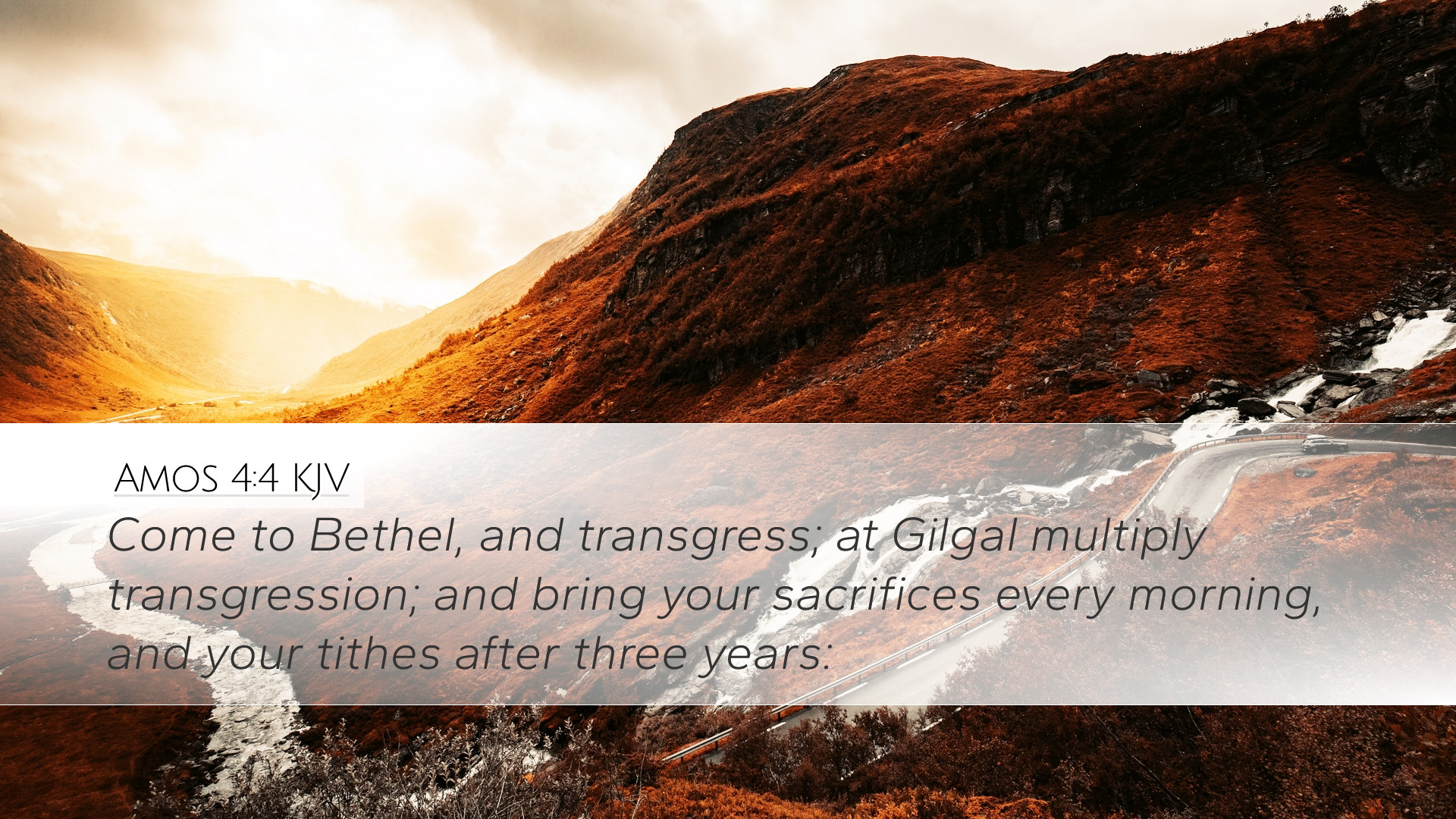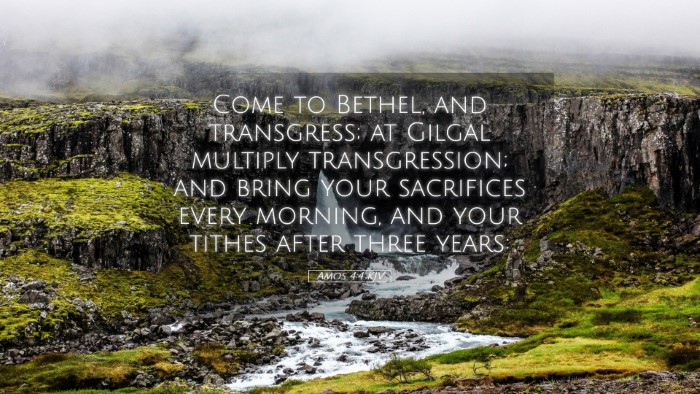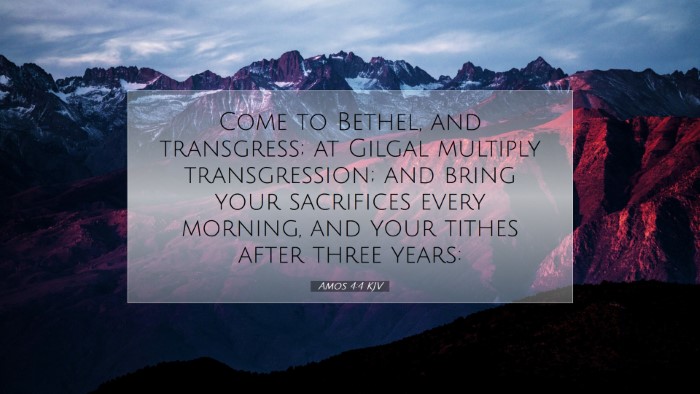Old Testament
Genesis Exodus Leviticus Numbers Deuteronomy Joshua Judges Ruth 1 Samuel 2 Samuel 1 Kings 2 Kings 1 Chronicles 2 Chronicles Ezra Nehemiah Esther Job Psalms Proverbs Ecclesiastes Song of Solomon Isaiah Jeremiah Lamentations Ezekiel Daniel Hosea Joel Amos Obadiah Jonah Micah Nahum Habakkuk Zephaniah Haggai Zechariah MalachiAmos 4:4
Amos 4:4 KJV
Come to Bethel, and transgress; at Gilgal multiply transgression; and bring your sacrifices every morning, and your tithes after three years:
Amos 4:4 Bible Commentary
Commentary on Amos 4:4
Verse: "Come to Bethel, and transgress; at Gilgal multiply transgression: and bring your sacrifices every morning, and your tithes after three years."
Introduction
The prophet Amos calls for attention to the people of Israel, highlighting the hypocrisy that often accompanies their religious practices. This verse serves both as an admonition and an ironic invitation to participate in the very actions that lead to divine displeasure.
Historical Context
Amos prophesied during a time of relative prosperity for Israel, but this wealth was coupled with moral decay and religious complacency. The places mentioned—Bethel and Gilgal—were significant religious sites, yet they were also centers of idolatrous practices. Understanding this context is essential for grasping the depth of Amos's message.
Key Locations:
- Bethel: Originally a center of true worship, it became a hub for idolatry under Jeroboam I.
- Gilgal: Another important site which had degenerated into a location of false worship.
Thematic Insights
The themes in Amos 4:4 encourage a reflective examination of true worship versus empty ritual. Below are some insights drawn from public domain commentaries.
1. The Irony of Worship
Amos employs irony by instructing the people to go and sin at their places of worship. Matthew Henry emphasizes that this is not a literal call but rather an exposure of their insincerity; they are invited to witness how far they have strayed from genuine faithfulness to God.
2. Hypocrisy in Sacrifices
Albert Barnes points out that the mentioning of "sacrifices" and "tithes" herein indicates the ritualistic aspect of worship. The people believed that their sacrifices would suffice for their lack of obedience and moral integrity. This reflects a deeper truth about the nature of worship that goes beyond mere outward acts.
3. A Call to Real Repentance
Adam Clarke highlights that real worship needs to stem from a heart aligned with God's will, rather than out of obligation or tradition. Clarke also adds that the repeated emphasis on the quantity of sacrifices underscores their misguided belief that they could 'buy' God's favor.
Theological Reflections
Several theological implications arise from the text. True worship is not merely about rituals; it demands a heart that is responsive to God’s commands and filled with genuine love for Him and for others.
Understanding God's Nature
The character of God is central in interpreting this verse. He desires obedience more than ritual. This portion of Scripture corresponds with larger biblical themes, such as those found in 1 Samuel 15:22, where Scripture affirms that to obey is better than sacrifice.
Examine Your Own Heart
For pastors, students, and theologians, this verse is an invitation to introspection about our own worship practices. Are we engaging in rituals without sincerity? Are we neglecting the weightier matters of justice, mercy, and faithfulness (Matthew 23:23)?
Conclusion
Amos 4:4 is a vital reminder that the heart of worship must be aligned with God’s will. As we delve into the complexities of worship, let us reflect on our practices to ensure they are not mere transgressions cloaked in the guise of piety but authentic expressions of love and devotion to God.
References for Further Study
- Matthew Henry: His expository insights focus on the sincerity of sacrifice and the essence of worship.
- Albert Barnes: Offers a comprehensive view on the implications of ritualistic worship and its shortcomings.
- Adam Clarke: Emphasizes the necessity of aligning one's heart with God's commandments for true worship.


